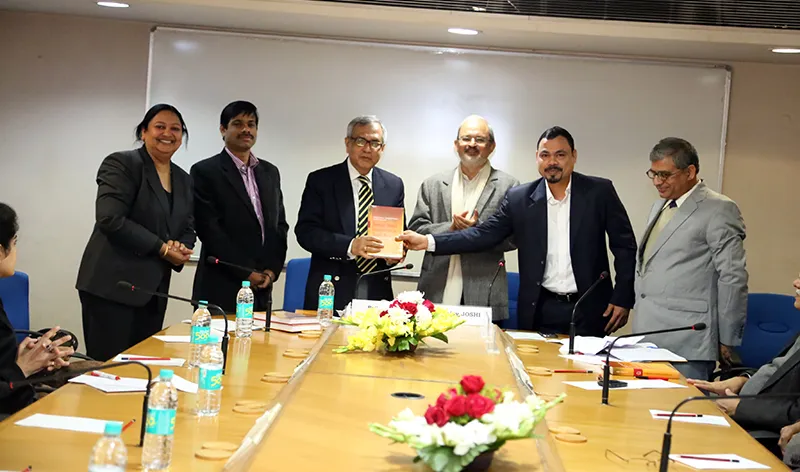Economic experts firmly believe that FDI is the need of the hour and with political will and good governance measures, it could prove to be crucial in enhancing development in the region.

Economic experts firmly believe that FDI is the need of the hour and with political will and good governance measures, it could prove to be crucial in enhancing development in the region.
This view expressed by experts during a panel discussion on "Why FDI continues to elude South Asia" on the occasion of the release of the book "FDI in South Asia: Policy, Impact, Determinants and Challenges" on December 21, 2013.
The book is authored by Dr. Geethanjali Nataraj, Senior Fellow, ORF, Dr. Pravakar Sahoo, Indian Economic Growth (IEG) and Ranjan Dash, Wadhwani Foundation and is published by Springer.
The book was released by Dr. Rajiv Kumar, former Secretary General of FICCI and Senior Fellow, Centre for Policy Research, Delhi.
The book, based on research blends theory, empirical evidence and policy, asks and attempts to answer a few core questions relevant to FDI policy in South Asian countries and also indicates a way forward for overcoming the challenges and constraints to enhanced FDI in the region -- especially in India, Pakistan, Bangladesh, Sri Lanka, and Pakistan. The key questions that the book attempts to answer include the following
- What were the major and successful FDI policy reforms and what were the institutional and other factors responsible for the success?
- Which major reforms have succeeded in the South Asian countries?
- What are the factors influencing FDI inflows to the region?
- What has been the impact of FDI on macroeconomic performance of the SA countries?
- What are the constraints to FDI inflows into South Asia and India at present?
- What are the policy priorities/reforms relevant in the present context?
In the panel discussion, besides Dr. Rajiv Kumar, Dr. Manoj Panda, Director, IEG and Mr. J M Mauskar, Senior Advisor, ORF, participated. They reiterated that FDI is the need of the hour.
Dr. Kumar emphasised that though it has been broadly agreed that FDI is good debt and the region needs FDI, unless the governance deficit is bridged, it would be difficult to improve the investment climate in the country.
He asked the authors to look into issues related to impact of FDI on Micro and Small and Medium Enterprises, impact of FDI on employment with the teeming millions entering the job market every year not only in India but South Asia as a whole and also assess the whether the Indian business really favours and supports FDI in the country.
Mr. Mauskar emphasized on how technology transfer was also important for India to enforce FDI reforms as implementation is the key to all policies. He requested the authors to stress on FDI and technology transfer.
Dr. Panda spoke about the opportunity available to India vis-à-vis China due to the rising of wages in China resulting in loss of export competitiveness in China, leaving the space for other countries to step in and take advantage.
Mr. Sunjoy Joshi, Director, ORF, stressed on the immense potential that exists in the south Asian region to attract FDI. He said that trade and FDI are the key elements of any economic reform programme.
He pointed out that the challenges facing the region are systemic?poor infrastructure, restrictive labour policies, political uncertainties and civil conflicts, weak regulatory systems, needlessly complex procedures for setting up businesses and rampant corruption are just some of them.
Mr Joshi said that the book "FDI in South Asia" is extremely timely in the context of the India’s dwindling growth, poor investment climate, and the secular slow - down of growth in other south Asian countries as well.
The views expressed above belong to the author(s). ORF research and analyses now available on Telegram! Click here to access our curated content — blogs, longforms and interviews.
